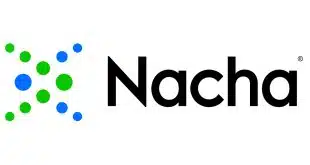n
Tempo Payments Inc., the leading company in the decoupled debit card niche, is going out of business, and it’s placing the blame squarely on the Federal Reserve Board’s new debit card regulations. The company says the regulations will cut its revenues in half.
n
n
“We are a casualty of the Durbin Amendment,” says chief executive Mike Grossman in reference to the section of 2010’s Dodd-Frank Act that ordered the Fed to set price controls on debit card interchange and lift issuer and network restrictions on merchants’ freedom to route debit transactions as they see fit. The Fed came out with its final rule June 29, a rule that sets interchange at 21 cents plus 0.05% of the sale. According to Grossman, Tempo currently gets 44 cents in gross revenues per transaction.
n
n
Founded about eight years ago as Debitman Card Inc., Tempo had its ups and downs over the years and changed its business model and bank partners along the way. But Grossman says the company was hitting its stride in the past two years, with “hundreds of thousands” of cards in issue and “millions” more in the pipeline. “It’s very frustrating,” he says. “We were clearly on a path to significant success.”
n
n
San Mateo, Calif.-based Tempo has about eight merchant partners that offer their customers rewards debit cards branded with the Discover or MasterCard network logos. Tempo’s main issuing partner is now Brookings, S.D.-based First Bank & Trust. The largest merchant partner is BP p.l.c.’s Arco unit. Other partners include convenience-store chains such as Tulsa, Okla.-based QuikTrip Corp. QuikTrip first became a Tempo merchant in 2007, though the chain’s current card has only been out since August, according to The Wichita (Kan.) Eagle. The newspaper reported over the weekend that Tempo notified QuikTrip that its program would end July 15 and that Tempo would cease operations.
n
n
Grossman confirmed that, saying the company laid off 15 of its 25 employees when the Fed’s regulations came out and that the rest, including himself, would be laid off once operations wind down over the next few months. “When you impose price controls, a lot of things happen,” says Grossman.
n
n
The financial institution that holds a customer’s demand-deposit account does not issue the Tempo debit card. Instead, the card uses the payment card network for authorization and settlement with the merchant acquirer, but debits the DDA via the automated clearing house for settlement with the cardholder. Revenue is generated based on the interchange rates of the card network over which the transaction is routed. Tempo oversees the whole process, divvying up the revenue between the issuer, merchant, and itself.
n
n
The Durbin Amendment exempts from interchange regulation debit card issuers with less than $10 billion in assets as well as general-purpose reloadable prepaid cards and government debit cards. Although First Bank and Trust has only $812 million in assets, the Fed specifically did not exempt decoupled debit cards whose transactions are routed over payment card networks. “An issuer of a decoupled debit card is not exempt … even if, together with its affiliates, it has assets of less than $10 billion, because it is not the entity holding the account to be debited,” page 323 of the draft final rule says. According to Grossman, “They singled out decoupled debit card issuers.”
n
n
A heavy reliance on interchange proved to be Tempo’s undoing, according to Patricia Hewitt, director of the Debit Advisory Service at Mercator Advisory Group Inc. “It’s math,” she says. “You can’t cut 50% of the revenue stream and continue to operate.”
n
n
The subject of much discussion a few years ago as the next big thing in payments, decoupled grabbed headlines when Tempo ramped up and big credit card issuer Capital One Financial Corp. tested the market. Although Capital One never rolled out a decoupled debit program and Tempo is about to close its doors, Hewitt still credits Grossman for proving that a case could be made for decoupled debit. “Mike was one of the first people to change the story …. that the access device can be separate from the funding source,” she says.
n
n
Tempo’s demise doesn’t mean merchants don’t want alternatives to conventional debit and credit cards. A QuikTrip spokesperson told The Wichita Eagle that the Tempo program “worked for us,” and that the company would look for an alternative.
n
n
Grossman says about $20 million had been invested into Tempo over the years.




